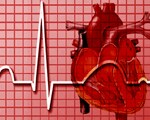It was found that the participants whose HDL cholesterol was less able to remove cholesterol from the macrophages tended to have a thicker carotid artery.

HDL (high-density lipoprotein) cholesterol performs this clean-up by acting as a boat, removing unwanted cholesterol from cells called macrophages and transporting it to the liver, where the body can get rid of it. That helps prevent the cholesterol from getting stuck in the arterial walls, leading to the plaques that are a hallmark of heart disease.
Low levels of HDL are strongly associated with a high risk of heart disease, but the converse isn't always the case. For years, experts were perplexed at why some of those with high levels of HDL cholesterol were still at high risk of heart attacks.
Researchers took blood samples and measured the thickness of the blood vessel walls in the carotid artery of the necks of 203 healthy adults in America. The carotid thickness indicates arterial plaque and heart disease risk. They then took the HDL from the blood and applied it to macrophages derived from mouse cell lines. In humans and mice, macrophages are white blood cells that swallow invading microbes as a front line of defense; they also engulf cholesterol, thus contributing to the formation of plaques and inflammation in the walls of the arteries.
It was found that the participants whose HDL cholesterol was less able to remove cholesterol from the macrophages tended to have a thicker carotid artery. The function of the HDL was an even better predictor of the thickness of the carotid wall than the HDL level itself. The researchers term this function 'cholesterol efflux capacity.'
In a second experiment, the researchers measured the HDL function of 442 people who had undergone bypass surgery due to a blocked artery and 351 people without heart disease. Those with heart disease had poorer HDL function than those without it, even after adjusting for traditional risk factors. The people who had blockages had significantly less ability to promote cholesterol removal than those who had no blockages. The measure of HDL function was a much better predictor of the likelihood of having blocked arteries than the measure of HDL cholesterol itself, the researchers found.
But the researchers cautioned that it didn't mean high HDL is of no help. Generally, people with higher levels of HDL also have better function. But the findings may help explain why some people with high HDL are still found to have heart disease.
There is no test available for HDL function, nor is there likely to be one soon. It was pointed out that researchers also don't know what causes HDL cholesterol to function poorly in removing excess cholesterol, something that will be the subject of future research.
DoctorNDTV is the one stop site for all your health needs providing the most credible health information, health news and tips with expert advice on healthy living, diet plans, informative videos etc. You can get the most relevant and accurate info you need about health problems like diabetes, cancer, pregnancy, HIV and AIDS, weight loss and many other lifestyle diseases. We have a panel of over 350 experts who help us develop content by giving their valuable inputs and bringing to us the latest in the world of healthcare.












